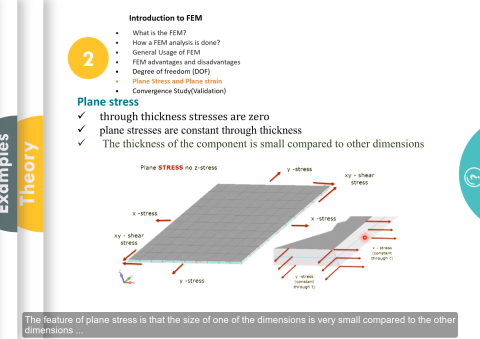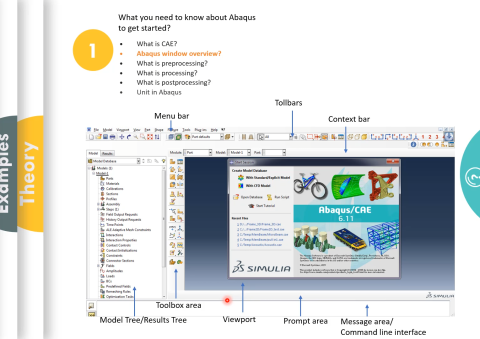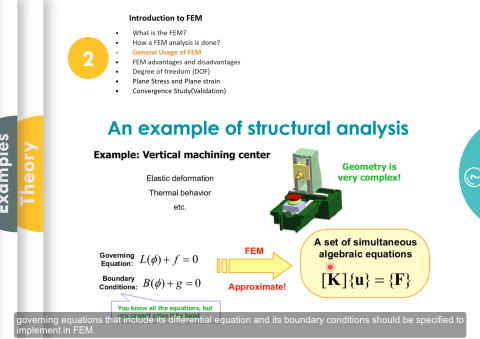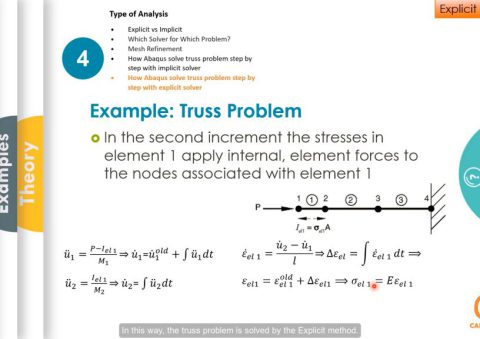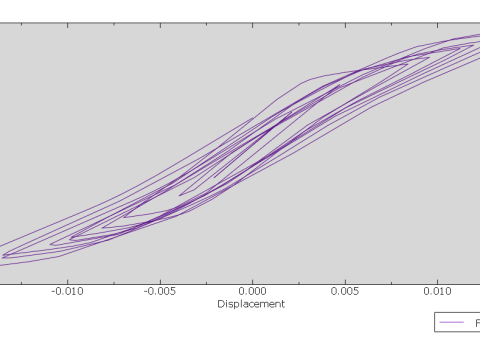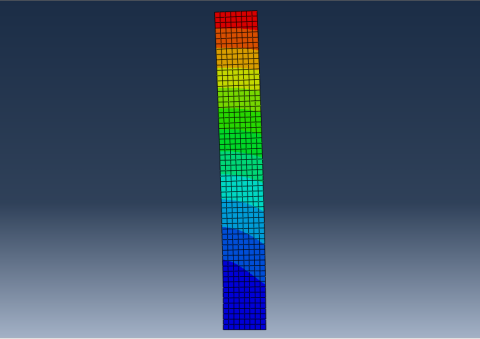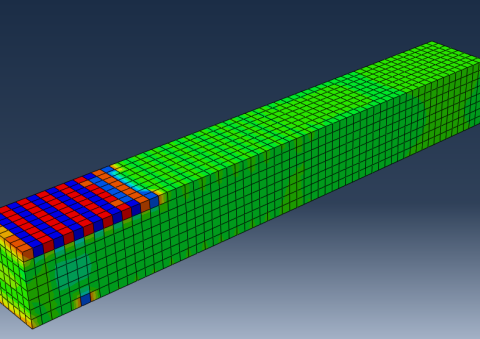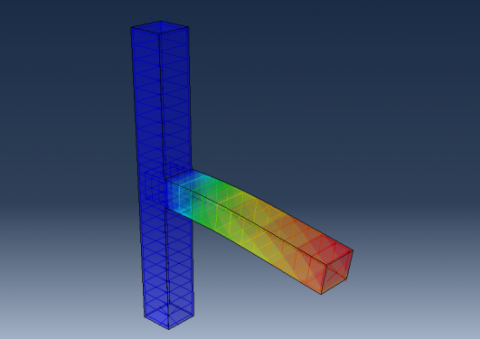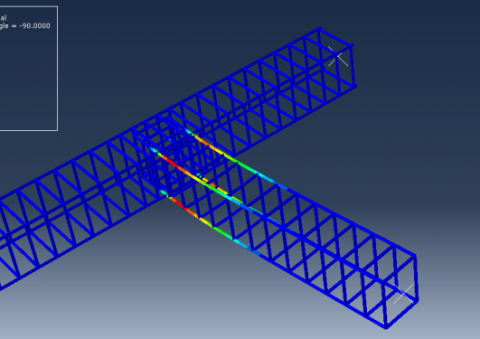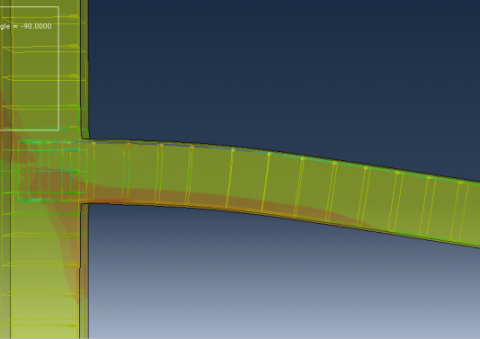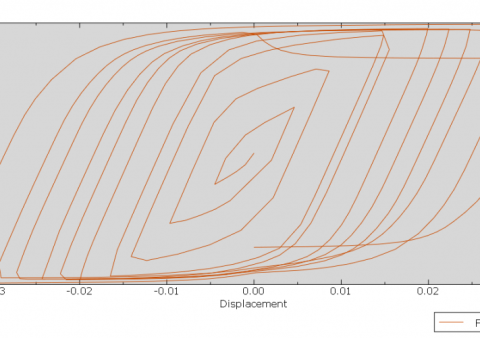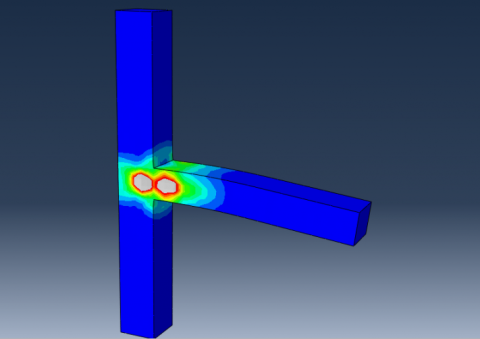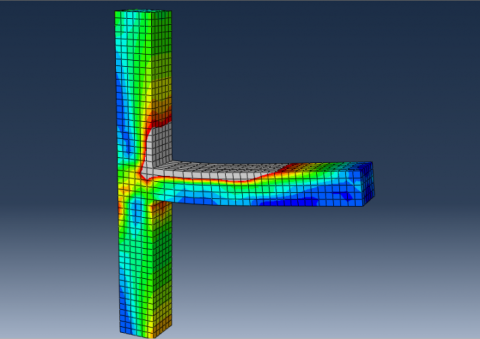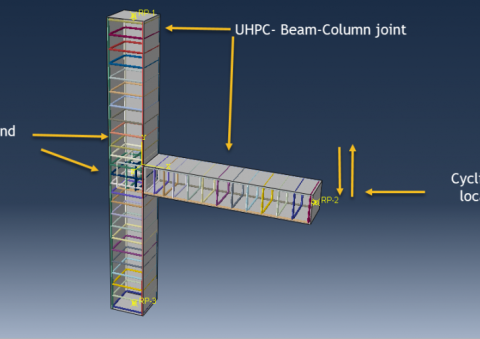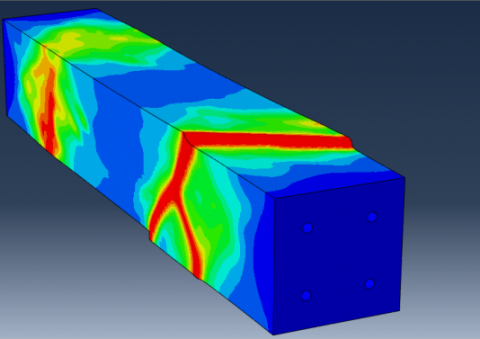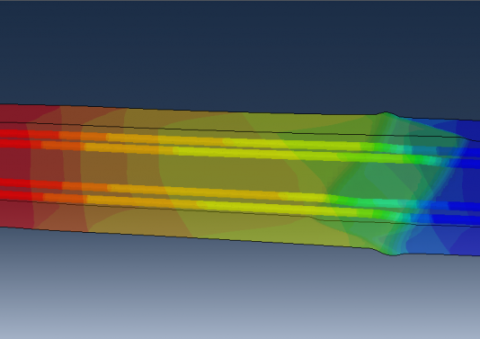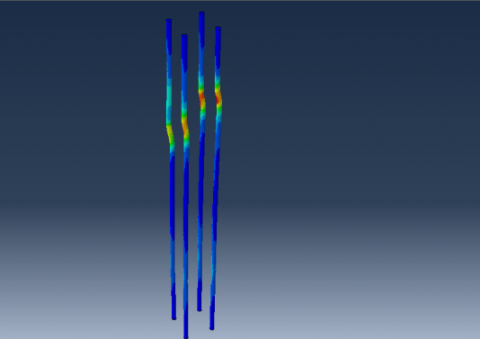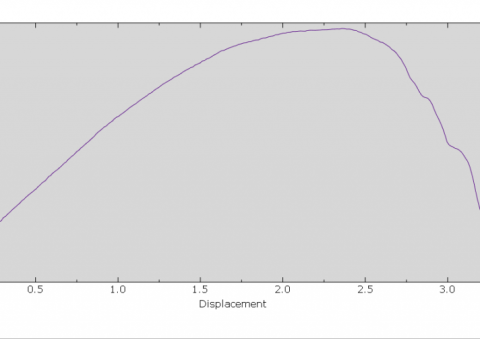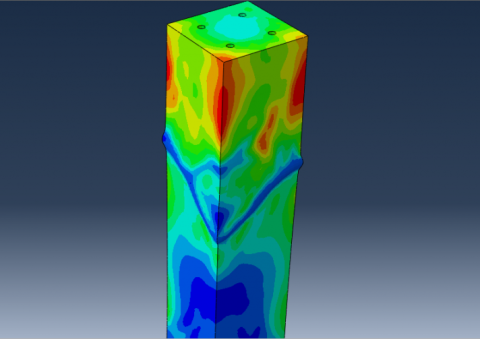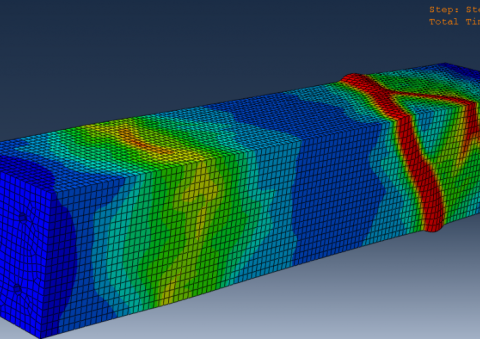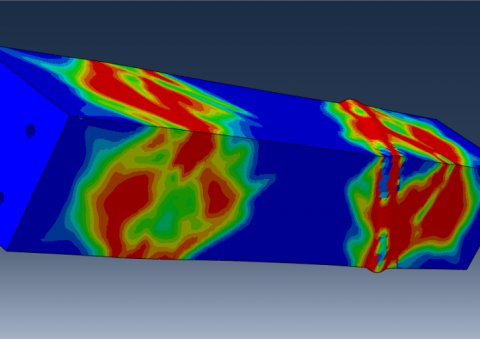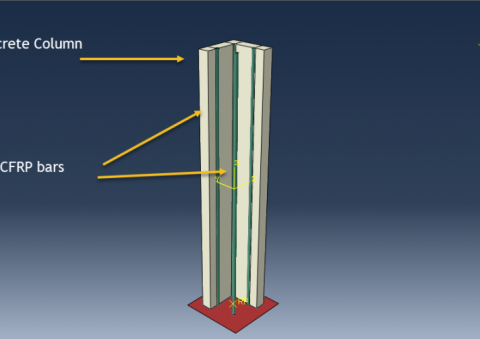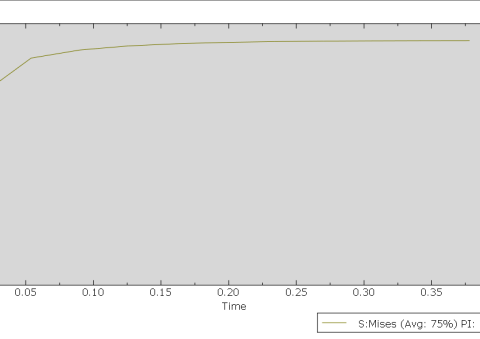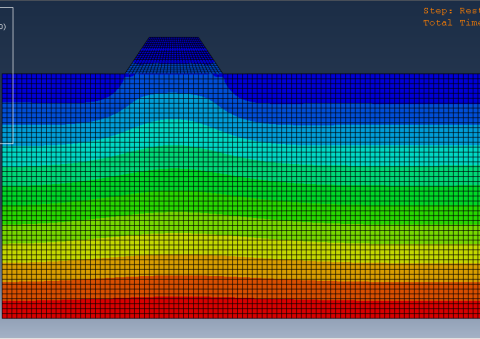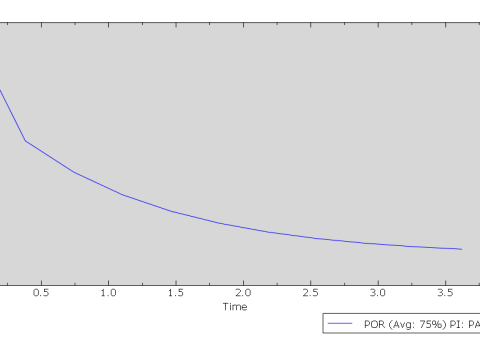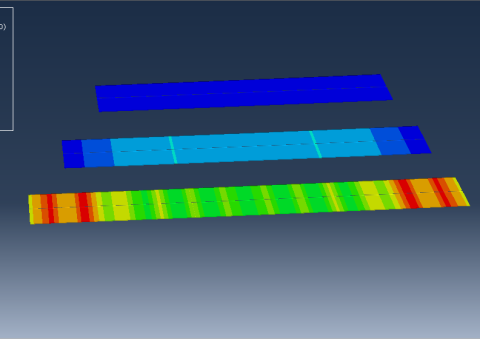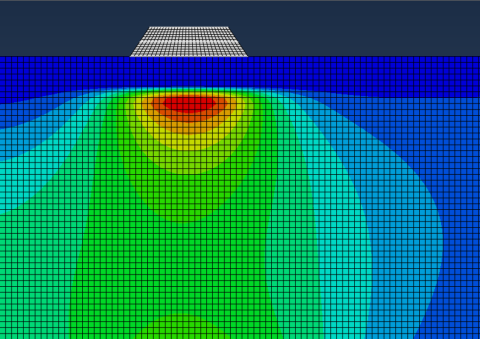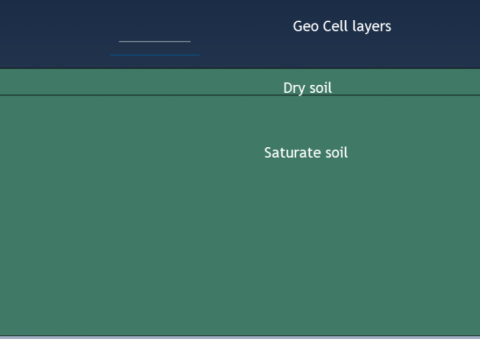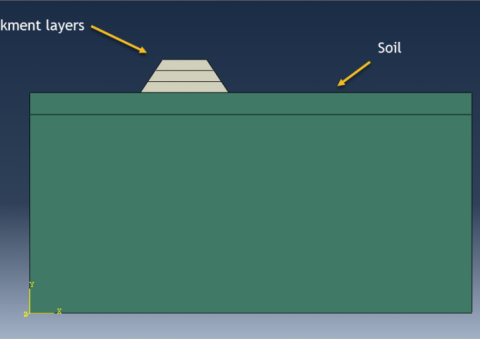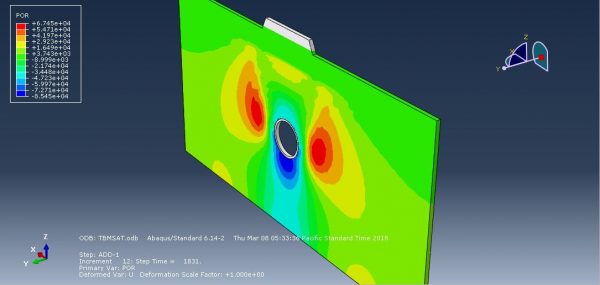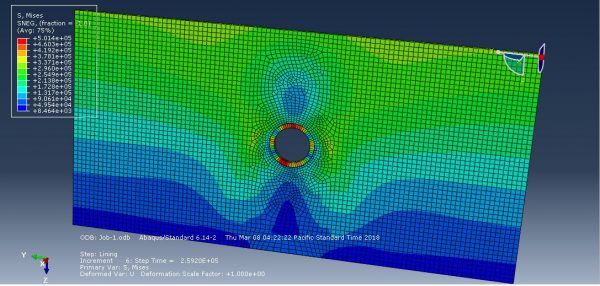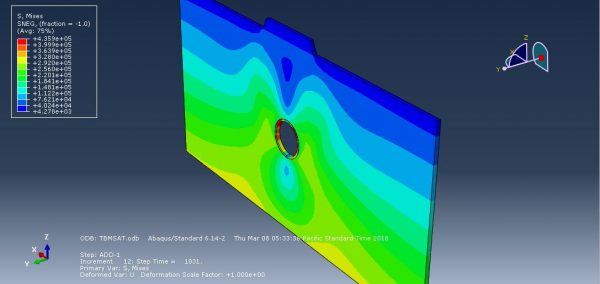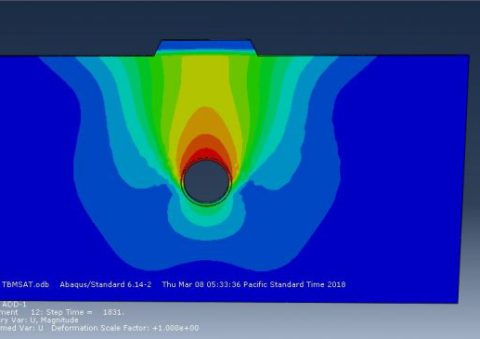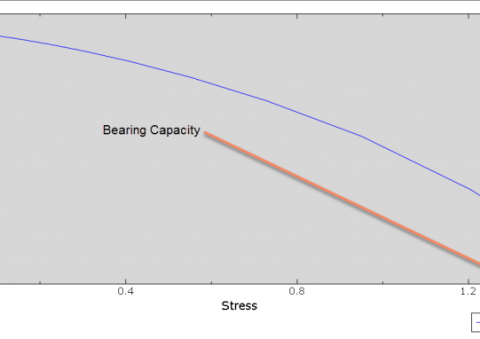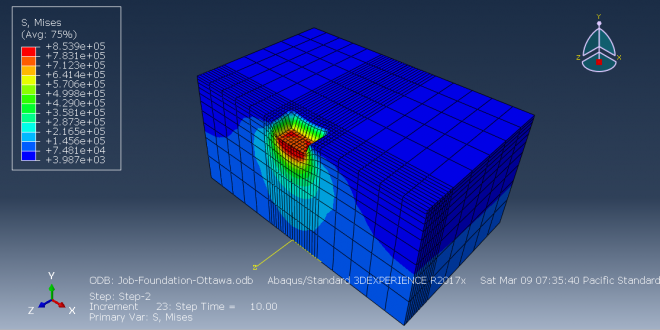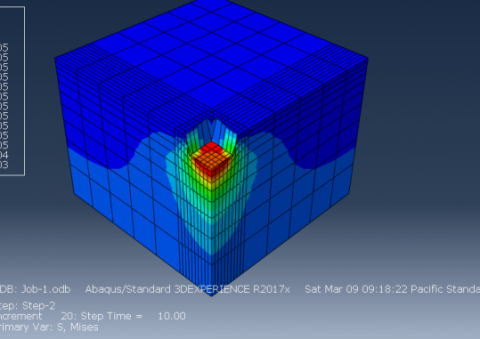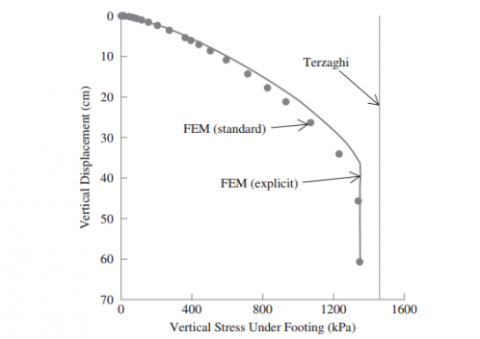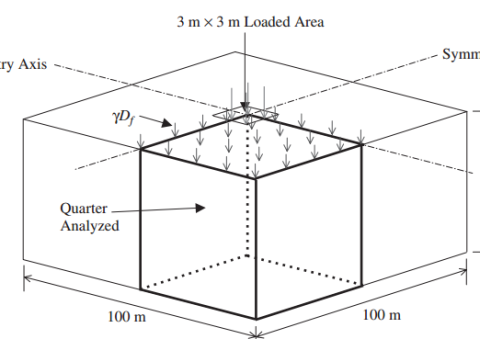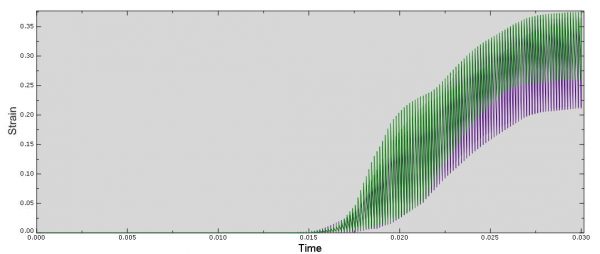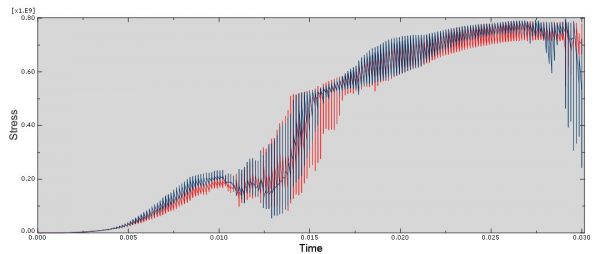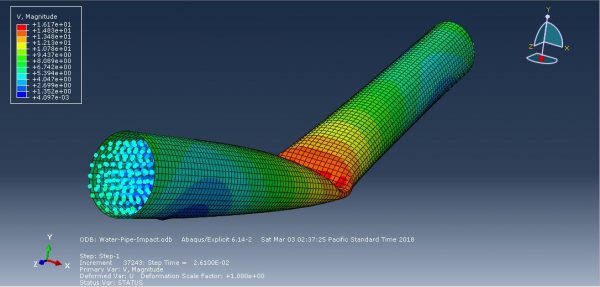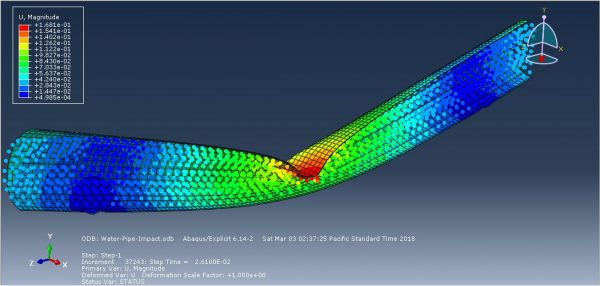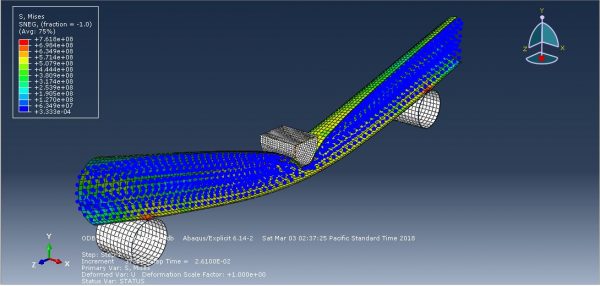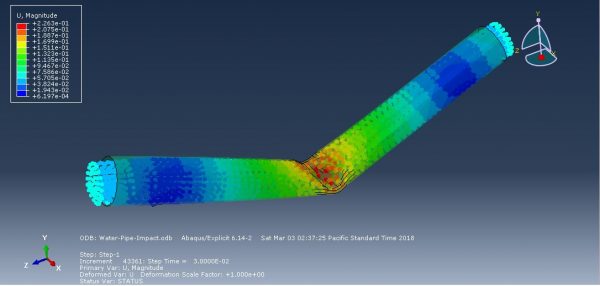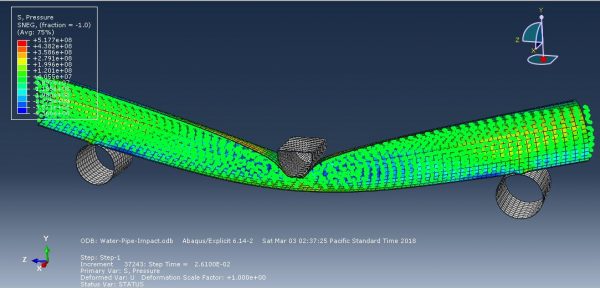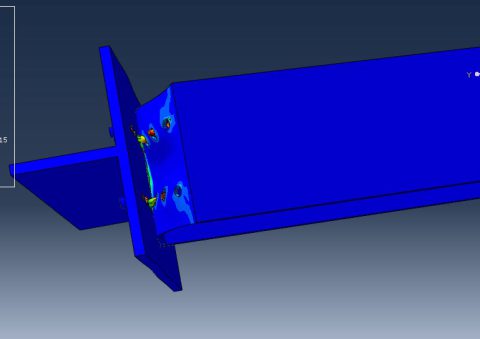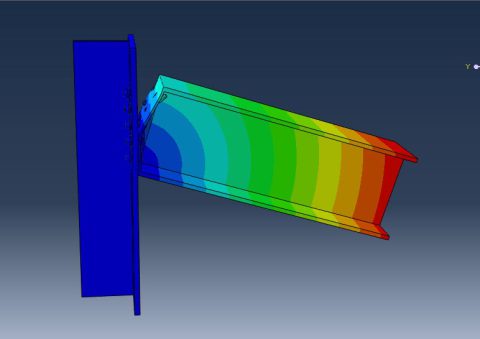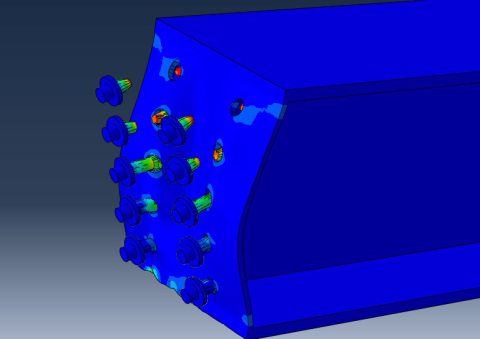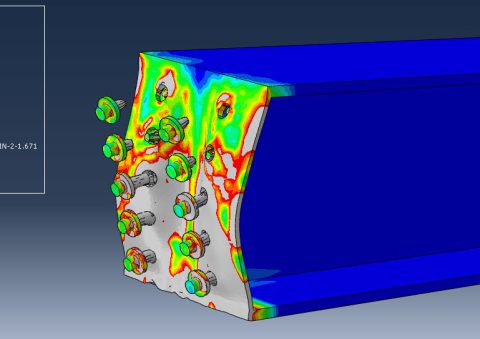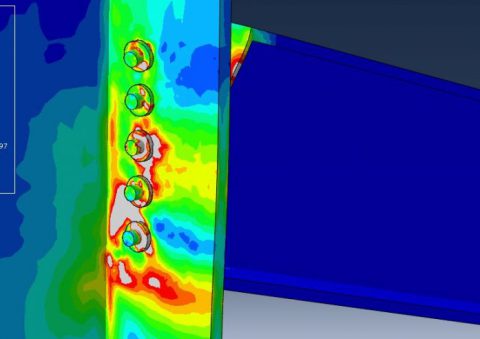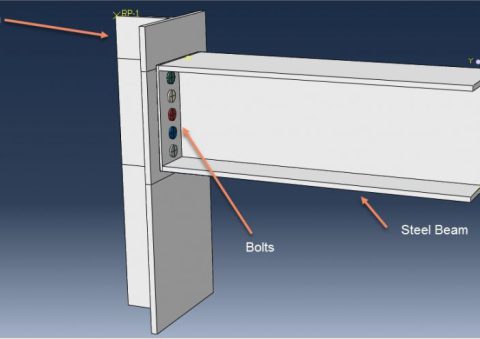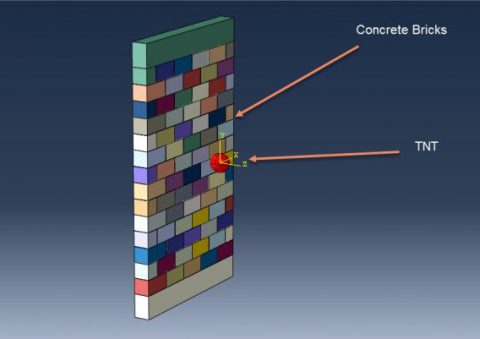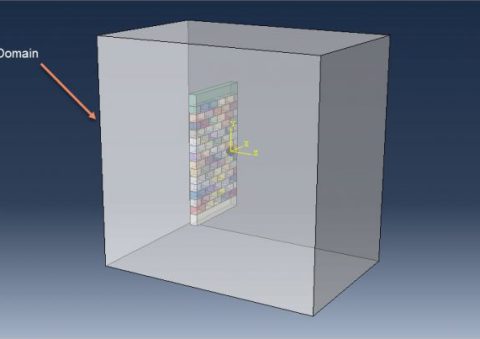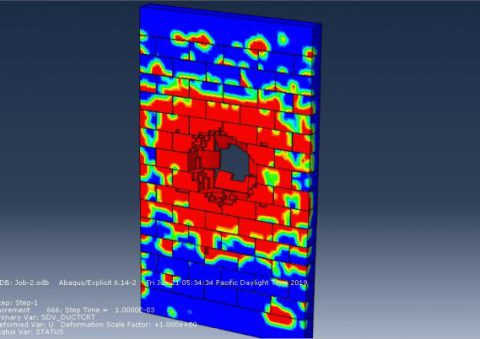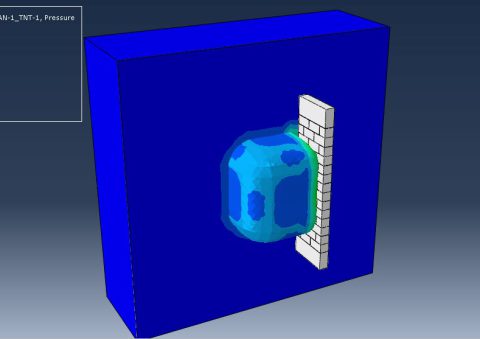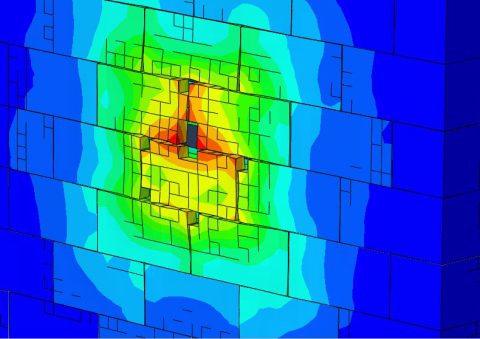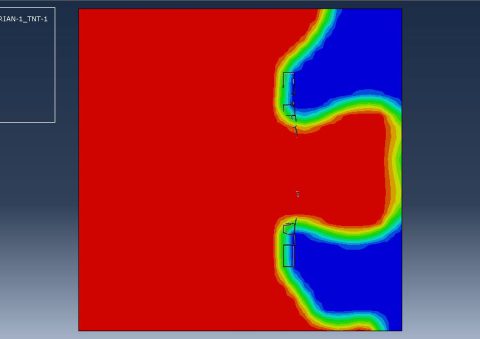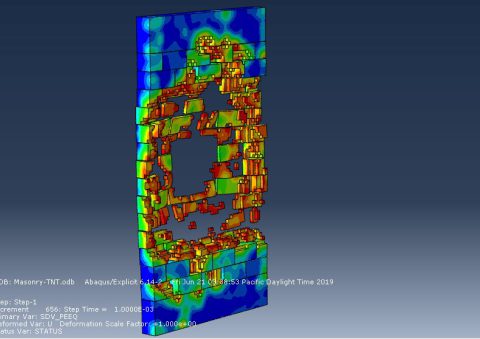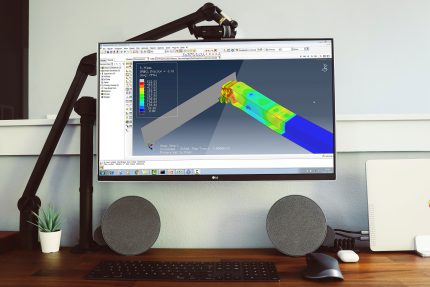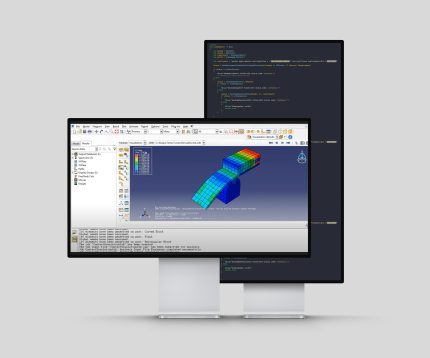Abaqus Tutorial for Civil Engineering Course (Economic Version)
This online course empowers you with a powerful skillset. Master foundational Abaqus, delve into advanced concrete & soil modeling, fastener modeling & material damage/fracture techniques. Design complex structures, understand diverse materials (concrete, soil), and perform advanced simulations. Ideal for all civil engineers – from beginners to specialists – seeking Abaqus mastery for real-world projects.
Upon completing this course, you’ll be well-equipped to tackle challenging civil engineering problems with the power of Abaqus at your fingertips, including advanced concepts.
Abaqus Tutorial for Civil Engineering and finite element method in civil engineering is fully discussed in this course.
*Notice that we also offer a full version of the course at a higher price, which includes most of the essential topics you will need for the simulation of civil engineering problems in Abaqus. This course covers all the topics listed in the curriculum below with a lock icon, including Advanced concrete, soil, and steel modeling, conquer fluid and dam analysis, tunnel excavation/stability, and unlock fastener modeling & material damage/fracture techniques (CRC & XFEM). Moreover, upon completing the course, you’ll be well-equipped to tackle civil engineering problems with the power of Abaqus at your fingertips, including advanced subroutines and scripting. You can view the full course through this link.
Finite Element Method in Civil Engineering
This Economic Version online course equips you with the mastery of Abaqus software, empowering you to tackle a wide range of finite element method in civil engineering challenges.
Through a structured learning journey, you’ll gain expertise in various Abaqus applications, combining the strengths of the following packages:
-
Foundational Abaqus Skills: Build a solid foundation in Abaqus, starting with user interface navigation, model creation, material properties, meshing techniques, and basic analysis procedures.
-
Concrete Structures: Delve into advanced concrete modeling techniques, including nonlinear material behavior, and cracking analysis.
-
Soil Mechanics: Master soil behavior modeling in Abaqus, covering essential topics like constitutive models, and analysis techniques for geotechnical problems.
-
Fluid Flow Analysis: Explore water simulation capabilities in Abaqus, ideal for hydraulic structures.
-
Fastener Modeling: Learn how to model and analyze bolted connections in Abaqus, ensuring the structural integrity of your designs.
-
Material Damage and Fracture: Develop advanced skills in simulating material damage and fracture behavior, including methodologies for concrete cracking.
Additionally, if you would like to access a comprehensive course that includes training on many practical topics regarding simulation in Abaqus for civil engineers, along with 55 other practical workshops, you can visit this link.
Abaqus Tutorial for Civil Engineering and finite element method for civil engineering is fully discussed in this course. More information about our training courses and packages is available on our Youtube Channel.
Lesson 1-1: ABAQUS/CAE Introduction
Lesson 1-2: Finite Element Method Introduction
Lesson 1-3: Different elements introduction in ABAQUS
Lesson 1-4: Types of analysis
Lesson 1-5: Some consideration in EXPLICIT Analysis
Lesson 1-6: buckle and frequency analysis
Lesson 1-7: Cohesive Behavior in Abaqus
Lesson 1-8: Damage information in Abaqus
* (Only available in full package)
Workshop 2-1: Simulation of Ultra-High-Performance-Fiber-Reinforcement Concrete column in cyclic loading
Workshop 2-2: Finite element simulation of Ultra-High-Performance Concrete beam-column joint in cyclic loading
Lesson 2-1: Abaqus composite modeling of Woven & Unidirectional + RVE method
Lesson 2-2: Damage information for structures
Workshop 2-3: Dynamic compression test of in concrete column reinforced with CFRP bars
Workshop 2-4: Finite element Analysis of hollow-core square reinforced concrete columns wrapped with CFRP under compression
Workshop 2-5: Axial compression in the damaged CFRP reinforced concrete column with initial residual stress
Workshop 2-6: Damaged concrete beam with initial residual stress reinforced CFRP sheet in bending loading
Workshop 2-7: Damage analysis of concrete beam-column joints simulation in cyclic loading
Workshop 2-8: FEM analysis of Elliptical ultra-high-performance concrete-filled steel tabular column under a compression loading
Workshop 2-9: Three points bending of High Strength Concrete(HSC) beam Simulation
Workshop 2-10: Flexural behavior of reinforced concrete beams strengthened with ultra-high performance concrete Analysis in Abaqus
Workshop 2-11: Finite element simulation of ECC/Concrete Composite Beam-Column Joints in axial loading
Workshop 2-12: Circular concrete-encased concrete-filled steel tube (CFST) stub columns simulation subjected to axial compression
Workshop 2-13: Axial compression loading simulation in the Ultra-High-Performance Fiber Reinforced Concrete Column
Workshop 2-14: Static and dynamic analysis of Concrete beam in bending loading
Workshop 2-15: Simulation of Flexural Behavior of Concrete Filled Square Steel Tube in Inner CFRP Circular Tube
Workshop 2-16: Damage Investigation of the concrete-filled double skin steel tube in dynamic bending
Workshop 2-17: Simulation of composite column(steel beam and concrete) in cyclic loading
Workshop 2-18: Failure analysis of concrete cover separation in FRP plated in RC beam
Workshop 2-19: Finite element simulation of reinforced concrete beams externally strengthened in flexure with side-bonded CFRP laminates
Workshop 2-20: steel-concrete composite column simulation in vertical and horizontal loading
Lesson 2-3: Heat transfer and Coupled temperature-displacement analysis
Lesson 2-4: ABAQUS Sequential Solution Software
Lesson 2-5: Lemaitre Damage model implementation with VUMAT Abaqus
Workshop 2-21: Damage mechanism and response of reinforced concrete containment structure under internal explosion
* (Only available in full package)
Workshop 3-1: Abaqus simulation of embankment construction with geocell on the saturate soil
Workshop 3-2: Abaqus simulation of Pressure Distribution on Subgrade Soil Underlying Geocell Reinforced Foundation Bed
Workshop 3-3: Abaqus simulation of geosynthetic-reinforced soil retaining wall
Workshop 3-4: Abaqus simulation of concrete piled raft interacted with soil
Workshop 3-5: Abaqus simulation of earthquake over a concrete tunnel having interaction with soi
Workshop 3-6: Abaqus simulation of embankment and excavation on saturated soil
Workshop 3-7: Simulation soil consolidation in interaction with concrete pile in Abaqus
Workshop 3-8: Abaqus simulation of geosynthetic-reinforced soil retaining wall besides heap soil
Workshop 3-9: Abaqus simulation embankment construction on saturate soil floor
Workshop 3-10: Abqus simulation of TBM modeling into the dry mix with saturate soil
Workshop 3-11: Abaqus simulation Pile in interaction with soil under vertical load
Workshop 3-12: Simulation Concrete wall in the soil in Abaqus
Workshop 3-13: Earthquake over gravity dam in interaction with water and soil using Abaqus
Workshop 3-14: Simulation sequential embankment construction and earthquake analysis after it in Abaqus
Workshop 3-15: Simulation Sequential Construction of an Embankment on a Clay Layer in Abaqus
Workshop 3-16: Abaqus simulation and calculation of the total load capacity of the pile group
Workshop 3-17: Simulation bearing capacity of a three-dimensional square foundation in Abaqus
Workshop 3-18: Abaqus simulation end bearing capacity of a pile under rapid load
Workshop 3-19: Simulation Bearing Capacity Failure of a Strip Foundation in Abaqus
Workshop 3-20: Abaqus simulation and calculate the long-term load capacity of a pipe pile
* (Only available in full package)
Workshop 4-1: Impact Simulation against water-filled X65 steel pipes in ABAQUS
Workshop 4-2: Numerical simulation of failure modes of concrete gravity dams subjected to an underwater explosion in Abaqus
Workshop 4-3: Simulation of water sloshing in the concrete tank under earthquake load in Abaqus
* (Only available in full package)
Workshop 5-1: Simulating the failure of bolts at the connection between steel beams and columns
Workshop 5-2: Modeling the dynamic failure of bolts at the joint between steel plates
Workshop 5-3: The simulation of double-angle connections of steel bolts under dynamic load
workshop 5-4: Bolt failure simulation on the steel beam and column connection in Abaqus
* (Only available in full package)
Lesson 6-1: Plasticity hardening in Abaqus
Workshop 6-1: Abaqus simulation of crack growth in the RC beam under 5 points bending
Workshop 6-2: Abaqus simulation of crack growth of a concrete wall under normal and transverse loading
Workshop 6-3: Abaqus simulation of crack growth of a bone under 3 points bending
Workshop 6-4: Abaqus simulation of crack growth in a concrete having wood shavings aggregates
Workshop 6-5: Abaqus simulation of crack growth in the Koyna dam under seismic loading
Workshop 6-6: Abaqus XFEM simulation of three-dimensional crack growth in the concrete slab
Workshop 6-7: Crack modeling and mechanical fracture parameter in the four-point bending test in Abaqus
Workshop 6-8: Abaqus XFEM simulation of crack growth in the concrete
Workshop 6-9: Abaqus simulation of crack growth of a pressure vessel using XFEM
Lesson 6-2: Dload and VDOALD subroutine
Workshop 6–10: Simulation of ellipsoid crack in the pressure vessel using Dload subroutine
Lesson 6-3: Continuously Reinforced Concrete Pavement modeling (CRCP)
Workshop 6-11: CRCP cracking analysis
Workshop 6-12: CRCP cracking analysis
* (Only available in full package)
Workshop 7-1: Damage analysis of an underground box tunnel subjected to surface explosion
Workshop 7-2: Tunnel dynamic analysis subjected to internal blast loading using CEL method
* (Only available in full package)
Workshop 8-1: Masonry wall behavior under coupled Eulerian-Lagrangian explosion
Workshop 8-2: Micro modeling of masonry wall (brick wall) in Abaqus and investigation of rocking mode fracture
Workshop 8-3: Numerical simulation of reinforced bricks masonry beams using GFRP reinforcement in Abaqus
Workshop 8-4: Abaqus micro model simulation of earthquake load over masonry wall
* (Only available in full package)
Our team of CAE Assistant instructors, renowned experts in their respective domains, will deliver each section of the course, providing you with unparalleled knowledge and insights.
Abaqus Tutorial for Civil Engineering and finite element method for civil engineering is fully discussed in this course.
Abaqus Tutorial for Civil Engineering | Finite Element Method for Civil Engineering
Upon successful completion of this course, you will receive a course completion certificate. This certificate guarantees your skills with the amount of time spent, skills trained, and can be verified online.
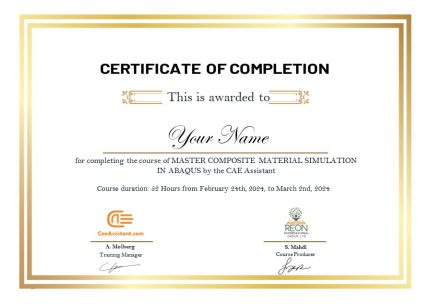
First Session for Free!
This course is perfect for:
➤ Civil engineers of all experience levels seeking to enhance their Abaqus expertise.
➤ Professors of Civil Engineering and Undergraduate Students who wants to elevate their research capabilities and explore cutting-edge simulation.
➤ Professionals or busy engineers who looking to specialize in specific areas like concrete structures, geotechnics, or structural analysis.
➤ Anyone interested in leveraging Abaqus for real-world civil engineering projects.
Upon completing this course, you’ll be well-equipped to tackle challenging civil engineering problems with the power of Abaqus at your fingertips. Enroll now and get the first session free!
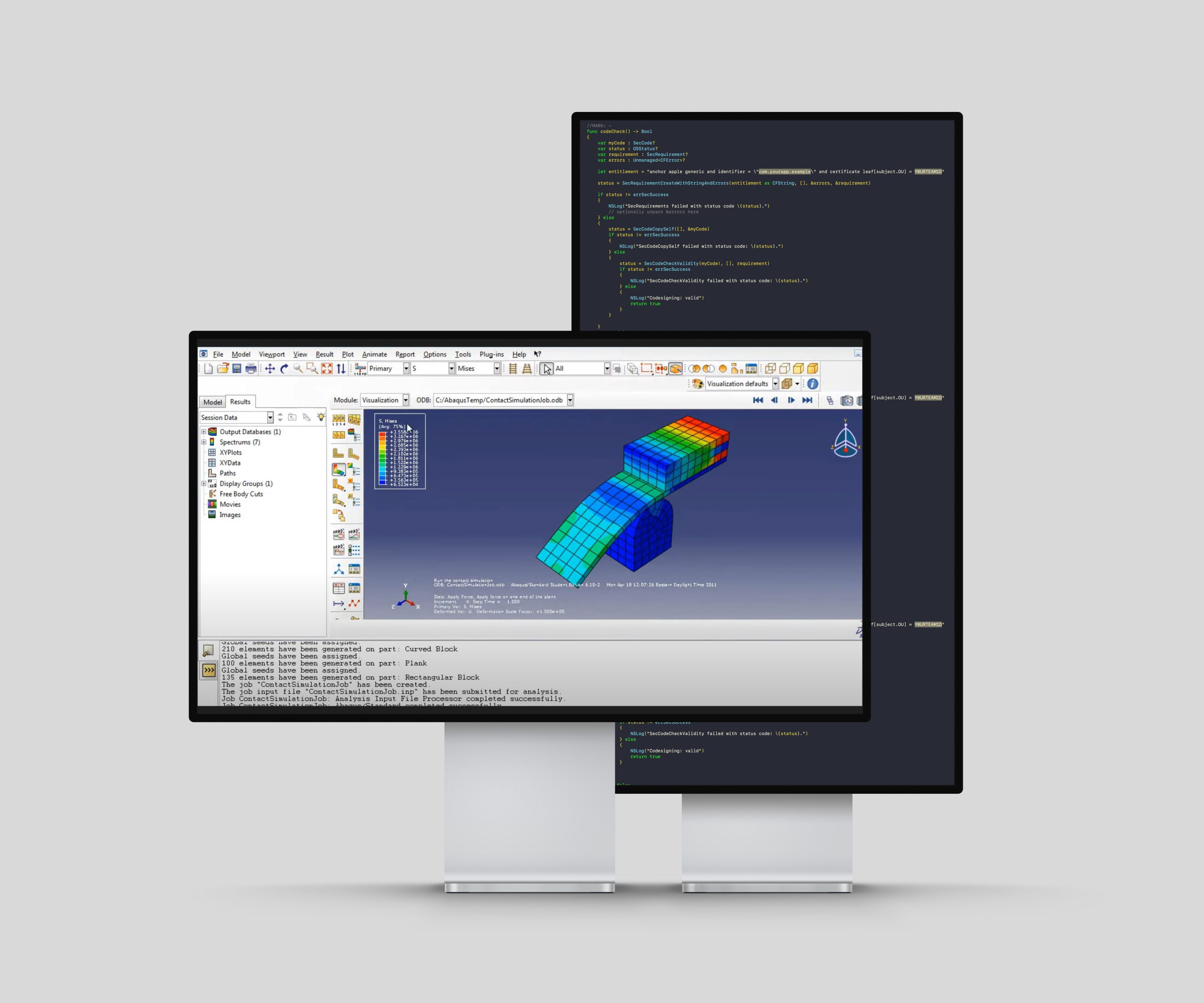
Why Choose CAE Assistant for FEA for Civil Course
Frequency Asked Questions
Finite Element Analysis Civil Engineering
Finite Element Analysis civil engineering is a computational method used to predict how structures and components will respond to external forces, such as loads, pressure, and temperature. By breaking down complex structures into smaller, finite elements, each with specific material properties and boundary conditions, FEA allows engineers to simulate and analyze the behavior of structures like buildings, bridges, and dams under various conditions. This technique is crucial for ensuring that designs meet safety, stability, and performance standards before construction.
The “Finite Element Method in Civil Engineering” course provides an in-depth understanding of how FEM is applied to various civil engineering problems, such as structural analysis, geotechnical engineering, and material behavior. This course covers the fundamental principles of finite element analysis civil engineering applications, helping students and professionals learn how to model and analyze complex structures like bridges, buildings, and foundations.
As part of the course, an “Abaqus Tutorial for Civil Engineering” is included to offer hands-on experience with one of the most widely used software tools in the industry. This tutorial guides learners through the process of setting up and running finite element analysis civil engineering scenarios, focusing on practical applications like stress analysis, load distribution, and deformation studies. By integrating both theoretical knowledge and practical skills, this course equips participants with the tools needed to effectively use FEA in civil engineering design and analysis, ensuring they can apply these techniques to real-world projects with confidence.




